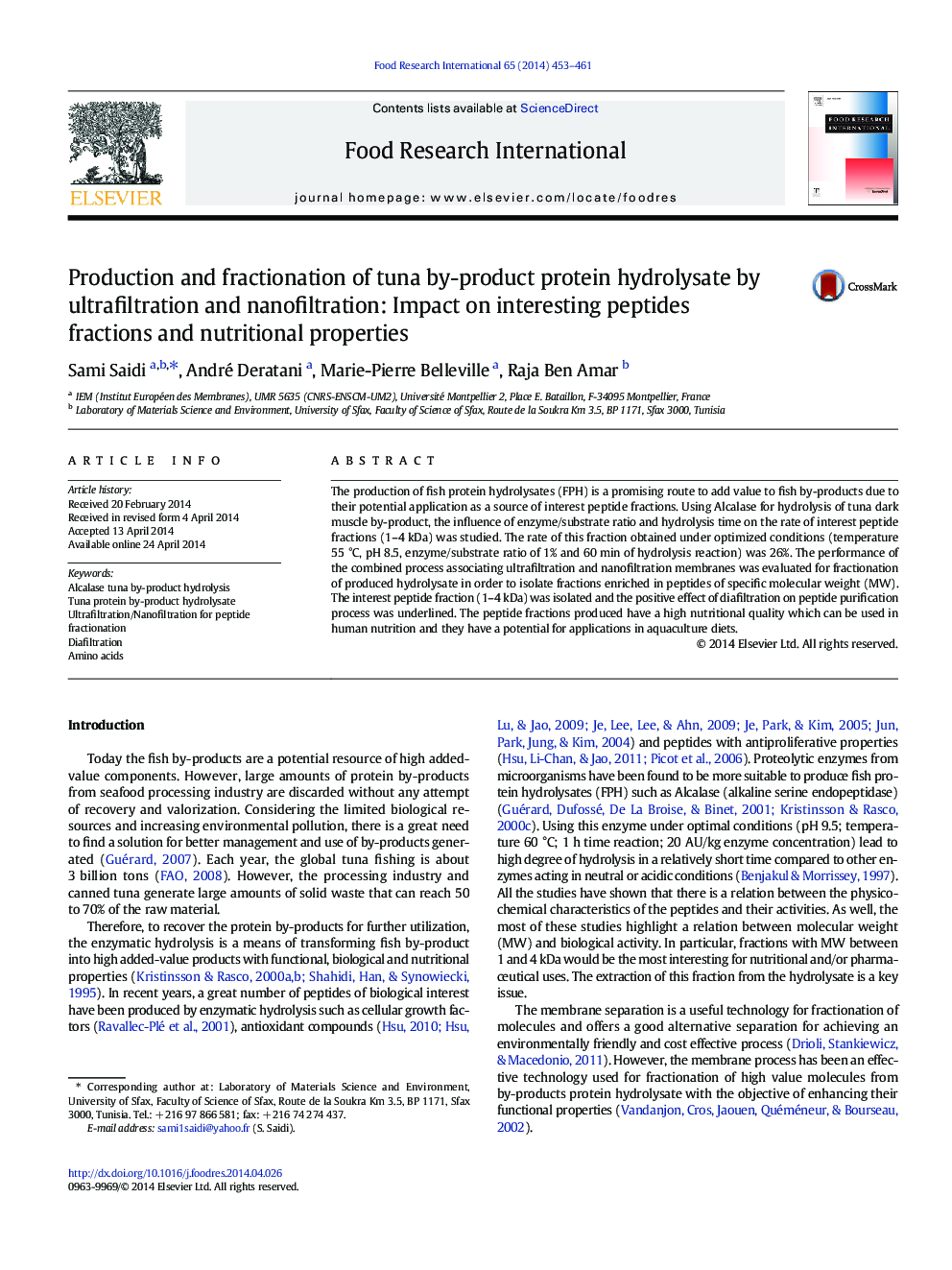| Article ID | Journal | Published Year | Pages | File Type |
|---|---|---|---|---|
| 4561598 | Food Research International | 2014 | 9 Pages |
•Production of peptide fractions (MM 1-4 kDa) from tuna by-product using Alcalase•Coupling of membrane separation process for fractionation of fish protein hydrolysate•The peptide fraction rich in interest peptide fractions was recovered and isolated•The positive effect of diafiltration on peptide purification was underlined•The peptides fractions produced have a high nutritional quality
The production of fish protein hydrolysates (FPH) is a promising route to add value to fish by-products due to their potential application as a source of interest peptide fractions. Using Alcalase for hydrolysis of tuna dark muscle by-product, the influence of enzyme/substrate ratio and hydrolysis time on the rate of interest peptide fractions (1–4 kDa) was studied. The rate of this fraction obtained under optimized conditions (temperature 55 °C, pH 8.5, enzyme/substrate ratio of 1% and 60 min of hydrolysis reaction) was 26%. The performance of the combined process associating ultrafiltration and nanofiltration membranes was evaluated for fractionation of produced hydrolysate in order to isolate fractions enriched in peptides of specific molecular weight (MW). The interest peptide fraction (1–4 kDa) was isolated and the positive effect of diafiltration on peptide purification process was underlined. The peptide fractions produced have a high nutritional quality which can be used in human nutrition and they have a potential for applications in aquaculture diets.
Graphical abstractFigure optionsDownload full-size imageDownload as PowerPoint slide
